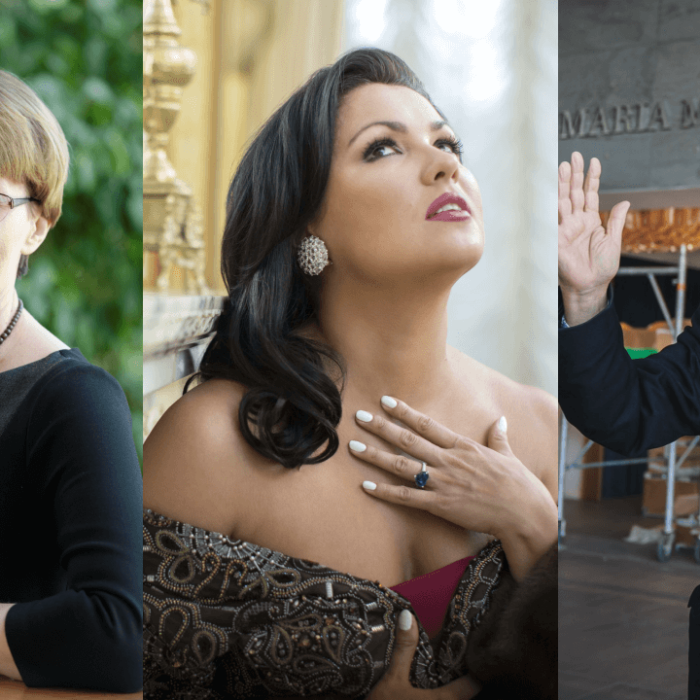
Editorial: Why is It Hard, But Essential to Praise
Finding a Humanist Critical Approach In a Harsh Time
By Polina Lyapustina(Photo: Joshua Reddekopp)
We, critics, forgot how to look around. Always concentrated on our perspective, our goal, we come to the theatre, ready to collect the proofs of our case. But now, what we see is impossible to ignore — it’s too unreal.
Halls that are two-thirds empty we now call sold-out.
Rehearsals in masks are a new normal.
Distanced actors play lovers on stage.
We need to look at it with our eyes wide open and see everything. And then…
Remember who we are. Why did people ever need art criticism? Because our perspective, experience, and knowledge of the backstage world could open more to the spectators. Because we could expand their understanding from what happens on stage to the whole opera world. So they could enjoy the performance not only by their ears and eyes but with their minds.
Two performances of this season hit me hard.
They amazed me and inspired me. They brought hope. They were not usual, accustomed, or normal, but this ‘new normal’ we would accept happily.
And here are my first two points:
1. Everyone really does their best (and they still know if they fail)
Look at them, they do. I used to say that the singers and orchestra members always try to do their best, but listen, they’re not trying anymore. They just do it, as they have no choice, no second chance. And after every tune, they know if it was great or just good, and they will work on it, over and over again. So I believe we can leave the small remarks to ourselves, at least for a while.
2. Write what you feel
Being locked for months physically and emotionally, our readers are dying to feel more, while we are struggling to express our feelings freely. And yet, it’s time to start. Feelings and emotions are information too. And bringing them to your text today, you’ll make a reader’s experience richer and brighter.
I know, I felt so excited at the premiere because I used to expect less from Lithuanian National Opera. Because talking about feelings, I felt angry hearing all the promises of the LNOBT Artistic Director. But when they all were suddenly fulfilled so brilliantly, I couldn’t help but feel it as our common triumph.
And then, I wrote a 100 percent positive review, where all the problems were external and global as if I and a theatre and an audience were on the same side against the disaster. I experienced that night like I was a part of what was happening, not a side-viewer — but the critic should be impartial, I reminded myself. I don’t think I brought any prejudice, no, it’s just so easy to feel stupid and lacking in confidence when you expose such a positive and kind internal view.
But a few days later, I found my third point:
3. We are all on the same side
And then, when I expected a confrontation or another surge of self-doubt or questioning of the professionalism of the singers (after being praised unconditionally) — but none of this happened. Musicians felt moved and humbled, knowing what effect their work had on people. They now have to double the success, and I could say it might stress them, but no. Not in these times the expectations and praises could stress the artists. The audience was happy to get some new details that never confronted their opinion and yet expanded their experience. The visitors to the next performances felt excited and finally believed they would step into the theatre soon.
The most difficult part of writing my first review of the season was to write short praise to literally every member of the cast and every musician. To find a place for a kind word for everyone. But now I see that it was worth it.
So the last point is:
4. Share positive vibes. Be kind and attentive.
Against the background of multidirectional global turbulence — political and economic, ethical and social, environmental, epidemiological — art keeps our sanity and our morality. So I’m asking, who are we to put our “important” opinions above this sacred mission of art?
I remember, I felt so offbeat praising every member of the cast, and the choir, and the orchestra in every single line of my last reviews, through I barely wrote an extra word (good or bad) about the level of singing before. I remember I expected to be ridiculed by colleagues. And yet, I stood for that, for every wonderful professional on and behind the stage being praised.
And then I read some other reviews and found them positive and approving too, but my dear colleagues seemed to try to keep that serious critical voice of their pieces. And this just didn’t work so smoothly.
Praise, I thought, glorifying without hesitation, those people who fight for our culture. They are heroes too. Stressed and overworked, losing their voices, their jobs, and their audience, they perform as they never did before.
They are big names hitting the famous stages.
They are interns just starting their careers.
They are musicians, holding concerts in Italian towns, even when deprived of the support of theaters.
They are singers forced to find another job to earn the living but singing every single day for anyone who listens.
What if we accept they can be infallible if only for now when we need them so much?
And for not standing here alone, I would like to finish by highlighting a famed quote:
“In many ways, the work of a critic is easy. We risk very little, yet enjoy a position over those who offer up their work and their selves to our judgment. We thrive on negative criticism, which is fun to write and to read. But the bitter truth we critics must face is that in the grand scheme of things, the average piece of junk is probably more meaningful than our criticism designating it so. But there are times when a critic truly risks something, and that is in the discovery and defense of the ‘new.’ The world is often unkind to new talent, new creations. The new needs friends.”
Anton Ego, “Ratatouille”
To Bernardo, a musician who fights for art and who will win, and a professional critic with an open heart
Categories
Editorials


